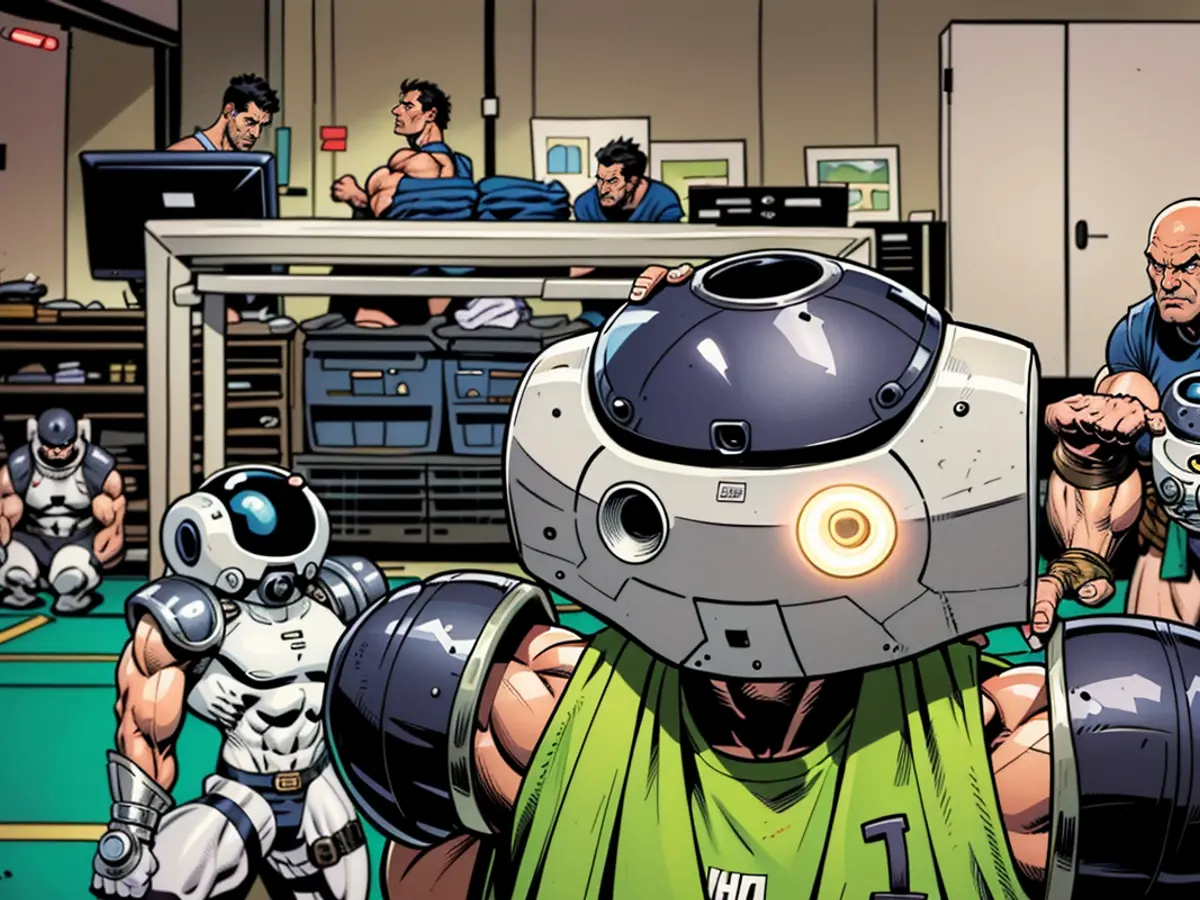Informatics - Robot Soccer World Cup in Eindhoven - German title chances are good
New Game, New Luck: Only a few days after the end of the European Championship in Germany, eyes are now turning to a different kind of soccer - the World Championship in Robot Football in the Netherlands, Eindhoven.
After the bitter defeat of the German National Team in the EM quarterfinals against Spain, the chances of a German title for the Robots are quite good, according to Max Polter, a team member of the Robot Soccer Team of the University of Technology, Economics and Culture Leipzig (HTWK). "There's reason to hope. The 9:0 defeat in the German-German final at the last WM in Bordeaux was painful."
Revenge against Bremen in sight
Last year, the Leipzigers lost against the final opponent B-Human, the team of the University of Bremen and the German Research Center for Artificial Intelligence (DFKI). But the last encounter at the German Championship in the spring, which ended in a 4:1 defeat, gave the Leipzig team courage. "We've moved on a bit from the 9:0 debacle," Polter continues. "It wasn't a gift, but it's more reachable now."
The last game was significantly more balanced, although some goal chances were unfortunately missed. In addition, the new HTWK robots are much more robust. The Leipzigers were the last World Champions in 2018 in Montreal. Since then, Bremen has won the title every year.
The Code Decides
The HTWK plays in a league where only the Software or code is decisive. "We all play with identical robots," explains Polter. In other leagues, the teams build their own robots, in which the software is less prominent.
Apart from the Leipzigers and Bremer, the Hamburg and Dortmund teams are also very strong. "The Runswift team from Australia is actually always at the front," says Polter.
Teamwork between Man and Machine
Apart from the main competition, there will be a so-called "Shared Autonomy Challenge" (in English: "Shared Autonomy Challenge") this year, in which two robots face each other. "However, only one team is fully autonomous - that is, not controlled by a human," explains Polter.
These robots are pre-programmed and play with a fully automated code. On the opponent's side, one robot is controlled remotely by a human. The challenge: the human at the controls cannot see the playing field. He can only stream the sensor data of the robot on his laptop and must give commands to the robot based on this information. The Challenge should, according to Polter, "highlight the cooperation between Man and Machine."
Preparations on High Gear
While many players in human football now enjoy a well-deserved summer break, the preparations for the Robot Soccer Team of the HTWK Leipzig are in full swing.
The tournament starts on July 17 in Eindhoven. According to Polter, the title is "definitely more reachable than in previous years." "We haven't left anything untried and have given it our all."
- The German team's loss in the EM quarterfinals against Spain has enhanced the prospects of a German title in the Robot World Championship, as suggested by Max Polter, a team member of the HTWK's Robot Soccer Team in Eindhoven, Netherlands.
- The University of Bremen and the German Research Center for Artificial Intelligence (DFKI) were the opponents in the last World Championship, where Bremen emerged victorious.
- Revenge against the University of Bremen in the upcoming World Championship is a significant motivation for the HTWK team, following their defeat in the German Championship last spring.
- The University of Technology, Economics and Culture Leipzig (HTWK) is optimistic about their chances in the World Championship, citing improvements in their robots' robustness and a more balanced playstyle.
- In the league where the HTWK plays, the software or code determines the outcome of the games, and teams such as Hamburg and Dortmund also present strong contenders.
- This year's World Championship will feature the "Shared Autonomy Challenge," where only one robot will be fully autonomous, and the other will be remotely controlled by a human.
- According to Polter, the "Shared Autonomy Challenge" will emphasize the collaboration between man and machine, as the human controller must rely on sensor data to issue commands.
- Although many human soccer players are enjoying their summer break, the HTWK's Robot Soccer Team is fully engaged in preparations for the World Championship, which is set to commence on July 17 in Eindhoven, Netherlands.
- Polter believes that the team's diligent preparation and commitment have significantly increased their title chances in the World Championship, making it a more attainable goal than in previous years.






